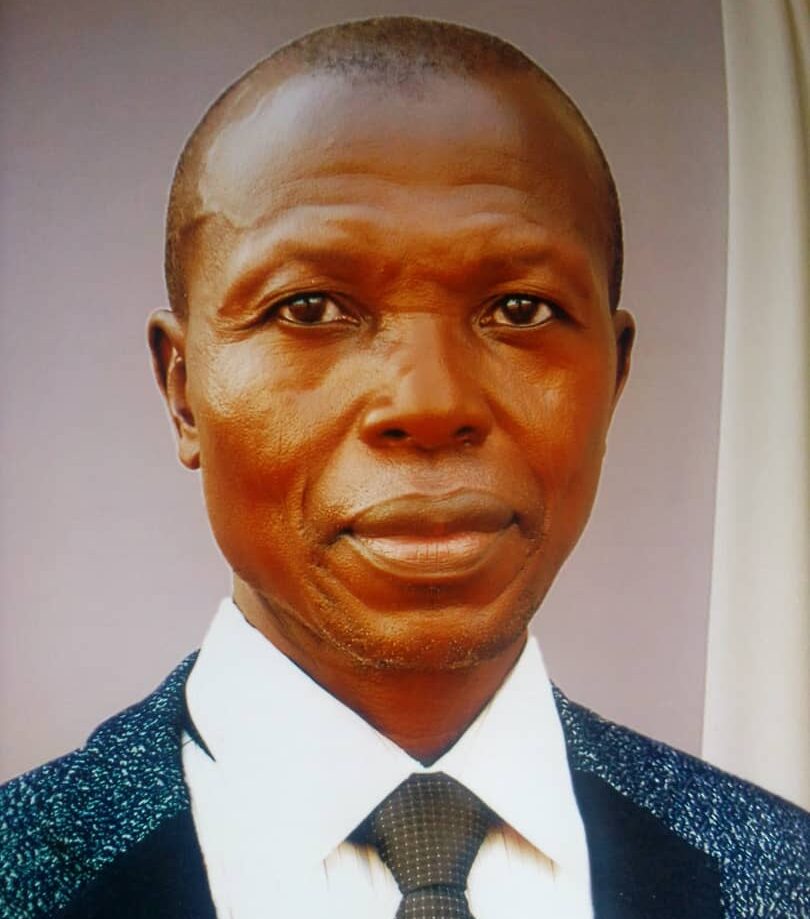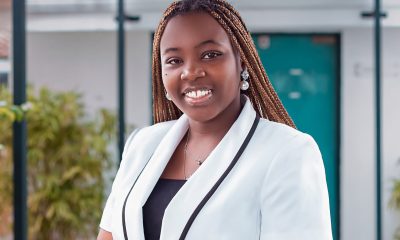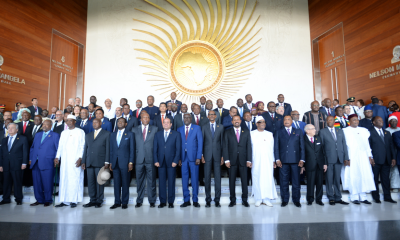Education
The Education System is Broken. Covid-19 may be the cure (Pt. 1)

Studying From Home (SFH) due to Covid may transform the entire education system (image: 123RF.com)
Institutional procrastination has kept the education sector globally from making long overdue changes to keep up with the ways of our evolving world. However, just like the first minor heart attach that doesn’t kill a person but forces them to finally take their cholesterol level and exercise seriously, Covid-19 might just be the disrupting force to permanently reshape formal education as we know it.
I believe there will be two distinct changes to the system, one that is bound to happen, and one that needs to happen.
In this first article of my two part series on education reform, I’ll discuss the first big change, and the one that we need to get started on right away: a complete revision of the educational curricula writ large.
Consider my daughter Maya. She is 13 years old and in 7th grade, and has 5 more years of school left. Let’s assume that she goes to a 4 year undergrad (ed:she better!) and then maybe takes a gap year before starting her first job. I know from my own experience, that most of us are pretty useless in our first 2–3 years in the workforce. At that time we are just learning the ropes, building the habits of showing up, navigating office politics and developing some sort of competence in our chosen career path. So, even excluding a master’s degree, etc. we’re talking about 12–15 years before she is really contributing to society.
For just a moment, now look back 15 years ago. In 2006: the very first iPhone had not been released. Netflix was still mailing out DVD’s in red envelopes. In that year. Twitter was founded and Facebook was still only for students on college campuses. The EV-1 electric cars had just been destroyed, and the space shuttle Columbia had just blown up upon re-entry. The world was a very different place 15 years ago, and the pace of innovation is still accelerating. That means that look forward to 15 years from now, will be like going 25 years back.
The cost of solar energy has dropped by 97% in the last 25 years. Between abundant solar, and massive projects in geothermal, our kids are going to live in a world biased towards renewable resources for the first time ever. Autonomous cars and trucks will wipe out a huge portion of driving careers, which are currently the no.1 job category 29 of the 50 States in the USA. Even software engineering is significantly changing as the world moves from bottom-of-the-stack system coding, to no-code applications through assembly of existing open-source modules and libraries.
Today’s schools are preparing our kids for a world which will not exist by the time they get there.
Forrester and Mckinsey estimate that almost 40 million clerical and location based jobs will be wiped out in the USA by 2030 due to automation. That is 25% of the total workforce. The Bureau of Labor statistics estimates that 43% of the total workforce in the USA in 2020 are what we now call “gig workers”, self-employed doing short-term task based jobs (like driving an Uber, tutoring online or freelancing).
Of course, new jobs will be created, just as today there are over eight hundred thousand technology jobs in Silicon Valley which did not exist before the digital revolution. However, these new jobs will be in new areas that we can’t currently foresee. As a (depressing) example, there are over 15,000 content moderators whose job it is to just review potentially awful & inappropriate posts on Facebook everyday, a dystopian career choice that was unimaginable 25 years ago.
What is certain though, is that this next generation of today’s students have zero chance of holding a single “cradle to grave” career. They will inevitably exist in a world of uncertainty and change.
Resilience, adaptability, and lifelong learning are the three most important traits we need to be teaching them.
There is little point in teaching “facts”, in a post-Google world. We have externalized knowledge such that any fact, or skill can instantly be learned by watching a few YouTube videos, or reading a collection of articles on Google. What needs to be taught are: curiosity, a passion for learning, and a dedication to cognitive reflection – the practice of thinking beyond an intuitive answer/media message, and considering a potentially less comfortable/intuitive correct answer.

Homeschooling interest peaked with Covid-19 (source: Google Trends)
At the start of the Covid-19 pandemic, Google searches for the term “homeschooling” shot up 400% compared to the previous 5 years. Inquiries to the National Homeschool Association jumped from 5 calls a day before Covid, to 3,400 per day in August. My own family formed a “microschool” taking the choices of teachers and curriculum into our own hands. While health and safety are undoubtedly the primary motivation for this trend, the genie is out of the bottle. Covid has shown us that the same Internet platforms that connect us with a global talent pool of employees, can also connect us with a global pool of amazing educators. My daughter’s Spanish teacher is in Puebla, Mexico. She’s taking a music technology course from the University of Adelaide. My son’s physics teacher is a NASA engineer working on the Mars rover. Thanks to Covid, “School” has transformed from a place where they go, to a thing that they do.
Given the slow bureaucratic nature of most ministries of education, making sweeping changes to the national curricula in “traditional schools” is going to be a 5 to 10 year process. If we are to adapt our systems of learning in time to not waste a generation of students with the wrong lessons, then these changes need to start now.
In part 2 of this series, I’ll discuss the second major coming change: the explosion of the education bundle.
Author: Jay Shapiro, Co-founder & CEO of Usiku Games
Education
BAO Exclusive with Dr. Musa Akinyemi, Rector of Crown Maritime Academy

Dr. Musa Akinyemi is an experienced Rector with a demonstrated history of working in the maritime industry. He is currently the Rector/CEO of Crown Maritime Academy, CMA a go-to maritime training institution. In this interview with Alaba Ayinuola of Business Africa Online (BAO), Dr. Musa shares more insights on the maritime training institution, its certifications, milestones and much more. Excerpt.
Alaba: Could please tell us about Crown Maritime Academy and your role?
Dr. Musa: Crown Maritime Academy, CMA was muted as an experiment in 2011. That was 10 years after my return from exile in Cote d’Ivoire having suffered insecurity as Gen. Sani Abacha deprived me of my Federal Government employment without any reason in 1996. Between 2011 and 2014, just within 3 years of existence, the Academy was recognized as a Centre of Academic Excellence by the Commonwealth in London and Listed in the 2014/2015 Edition of the Commonwealth Education Ministers Publication. In addition, Crown Maritime Academy, CMA was also featured Online by the Commonwealth Education Partnerships (CEP) of London.
My role from the onset was strategically collapsed between Lecturing and Administering. Thus, I chose to be addressed with the status of Registrar. Yet, I had to decide and also design courses to offer as well as which curriculum to evolve or develop. Therefore, I added the CEO title, even as Registrar. That made me search for a seasoned and very resourceful postgraduate fellow who became the Rector.
Alaba: What sets Crown Maritime Academy apart from other Maritime Academy and how is it positioned to be the go-to institution?
Dr. Musa: This Academy has been set apart uniquely, abinitio, because we envisioned and delivered an Academy with a qualitative, affordable and available platform capable of achieving pan-Africanism, especially the African youth emancipation.
Already, we have commanded progressive credibility and stable camaraderie with fellow academies and universities locally and in the diaspora. It is expected that continuity, creativity and just-in-time delivery of our programmes would position Crown Maritime Academy, CMA as a go-to maritime training institution.
Alaba: Please tell us about the certifications offered, accreditation and opportunities that come after completion?
Dr. Musa: The Academy started with Diploma award for 2 years programme, at the end of which, after some 1 year practice in the industry, awardees could return to do the Advanced Diploma. Indeed, it was a sound and recommendable beginning. What we are doing now is to fully blend with the Federal Ministry of Education’s regulatory framework so as to start the National Innovative Diploma (NID) or National Diploma (ND) in our own name.
Many of our graduates are already engaged in the military, para-military, port operations and the like, while a few others have set-up their own businesses.
Alaba: Can you highlights some of your significant milestones and challenges?
Dr. Musa: Crown Maritime Academy, CMA is at the forefront of sustainable maritime education and training in Nigeria. In 2021, our senior management team was specifically selected and sponsored to conduct a Facility Tour of the Federal Government-owned Maritime Academy of Nigeria (MAN) at Oron, Akwa Ibom State. The only private maritime training institution in Nigeria to be so recognized.
Don’t forget also that we produced the Best-Graduated Shipping Management Student in Nigeria in 2017/2018. In 2018/2019, we repeated the academic feat by also producing the Best-Graduated Shipping Management Student in Nigeria. We are equally among those leading in Transport and Logistics Management, as we produced the Best-Graduated in this specialization in Nigeria in the 2020/2021 session.
Meanwhile, our challenges remain, namely, the harsh and unsupported maritime domain plus the capital intensive nature of providing tertiary education.
Alaba: What is your overall assessment of the entire situation of Nigerian maritime training and capacity building?
Dr. Musa: We are still operating at 50 % capacity. Most sincerely though, if not for the resuscitation of the MAN Oron by the current Rector, Rtd. Commodore Effedua, the capacity could have been far lower.
So, let it be known that with the MAN Oron bouncing-back, the Federal Government would get the graduating cadets the much-needed training vessels and, as a matter of urgency, float an ocean-going fleet to employ them. Of course, training should, from this achievement, become a life-long development.
Alaba: What are CMA priorities/plans for the year and where do you see the academy in the next 5 years?
Dr. Musa: Our current priorities include moving to our permanent site as well as to smoothly and successfully partner with the Federal authorities in respect of educational qualifications, regulations, standards, control and compliance.
I am very confident that foreign students would regularly seek admission and come to study at Crown Maritime Academy, CMA in Nigeria.
Alaba: Your advice for students and professionals in or aspiring to go into the maritime sector?
Dr. Musa: The first advice from me is that they should not fail to understand the importance of triple “T” or T raised to power 3. The first T is Time, they should not be looking for how to cut corners or abuse the process. Let them give all the time needed to study! The second T is for Talent. This means that they should not come empty and go back empty, they should be loaded with effervescent intellectual deposits!! Finally, the third T, which stands for Trust. This is to say that you can not excel and sustain the lucrative life of a shipping professional if colleagues and the stakeholders can not trust you.
Education
The Space Prize Foundation and UNESCO partners to propel Space Education across Africa

The Space Prize Foundation announces the launch of its partnership with UNESCO, aimed at democratizing access to space education and inspiring a new generation of female scientists and engineers in Africa. Despite sixty years of space exploration, women are grossly underrepresented in the space industry, making this initiative potentially transformative on the educational landscape and, ultimately, the future of space exploration.
Starting in Rwanda, this visionary partnership will unfold over the next several months as both organizations meticulously plan the framework for the implementation of the Space Prize Foundation’s Space Education Curriculum. The initiative is designed to equip teachers across Africa with the tools and resources they need to empower young minds, particularly young women, to pursue careers in scientific and engineering fields. The open source curriculum is the first of its kind and was developed by leading science teachers across the United States of America.
Key elements of this initiative include:
Survey for Teacher Development: The Space Prize Foundation will conduct a comprehensive survey to identify the specific needs and levels of development required by teachers. The survey will delve into teaching styles, current practices in space education, and the resources available to educators.
Workshops for Curriculum Implementation and Teacher Empowerment: UNESCO and the Rwanda National Commission for UNESCO will identify participating teachers. The first workshop will provide participating teachers with an introduction to the Space Education Curriculum. A leading expert in space education will guide teachers in customizing the curriculum for their students and schools. The second workshop will be dedicated to Q&A, ensuring teachers have time to digest the curriculum.
Curriculum Reception: Following the initial workshops, teachers will be encouraged to present the tailored curriculum to their students at least twice a month. Feedback from this implementation will be reviewed in two 90-minute workshops to discuss the curriculum’s reception.
Structured Roll-out in Q2 2024: The formal launch of the curriculum is scheduled for Q2 2024, during which the Space Prize Foundation, UNESCO and participating teachers will design the cadence of classes and schedule monthly review sessions. This flexible approach aims to cater to the unique needs and capacities of different educational settings.
Impact Assessment: UNESCO will design an impact survey to measure the effectiveness of the Space Education Curriculum.
By commencing this journey in Rwanda, the Space Prize Foundation and UNESCO are laying the groundwork for a transformative educational initiative that will resonate across the continent. This partnership embodies a commitment to fostering the next generation of space enthusiasts, driving innovation, and building a brighter future for humanity.
Education
Ubongo Celebrates 10 Years of Transforming Education in Africa

Ubongo, Africa’s leading children’s edutainment and media company, is excited to announce its 10-year anniversary, marking a decade of transforming education and empowering millions of children across the continent. With an impressive portfolio of educational programs including Akili and Me, Ubongo Kids, and the recent addition of the captivating new show Nuzo and Namia, Ubongo continues to set the standard in innovative learning experiences for kids.
Since its founding in July of 2013 in Dar es Salaam, Tanzania, Ubongo has been dedicated to providing fun, localized, and multi-platform educational content that helps children foster a lifelong love of learning. Through accessible technologies like TV, radio, and mobile phones, Ubongo has reached over 32 million families across Africa, making a significant impact on the continent’s education landscape. Independent research studies examining Ubongo’s programs have consistently revealed their profound impact, enhancing school readiness, improving learning outcomes, and fostering positive social and behavioral change among both children and their caregivers.
Over the past 10 years, Ubongo has grown from a small Tanzanian grassroots startup to a Pan-African non-profit organization and the market leader in African edutainment. Ubongo’s innovative and engaging edutainment programs empower kids with the knowledge and critical skills they need to change their lives and their communities for the better.
“We are thrilled to celebrate this incredible milestone of 10 years,” said Mwasi Wilmore, CEO of Ubongo. “It is a testament to the hard work, dedication, and passion of our team, partners, and supporters who have believed in our mission and contributed to our success. Together, we have made a significant impact on education in Africa, and we are committed to continuing our journey of transforming learning for generations to come.”
In commemoration of this significant milestone, Ubongo has arranged a special 10-year anniversary event in Dar es Salaam to celebrate the accomplishments and milestones achieved throughout the years. The event will feature inspiring speeches and captivating presentations showcasing the journey and impact of Ubongo’s edutainment programs.
“We invite all our partners, supporters, and stakeholders to join us in celebrating this significant milestone,” added Mwasi Wilmore. “Together, let us reflect on our journey, express our gratitude, and renew our commitment to providing quality education and transformative learning experiences for children in Africa.”
“As we look ahead to the next decade, we remain steadfast in our mission to reach even more children, leveraging the power of edutainment to unlock their potential and shape a brighter future for Africa,” added Mwasi Wilmore.
-

 Afripreneur2 days ago
Afripreneur2 days agoMeet Datari Ladejo, the digital strategist helping brands thrive in the digital economy
-

 Afripreneur8 hours ago
Afripreneur8 hours agoCreativity, Data, and Innovation: Tutu Adetunmbi’s Vision for Africa’s Marketing Future with Stamfordham
-

 Press Release1 day ago
Press Release1 day agoThe 234 Venture Vault Launches Tech Startups and Talents Hunt Across Nigerian Tertiary Institutions
-

 Afripreneur8 hours ago
Afripreneur8 hours agoMeet Nzinga B. Mboup, a Senegalese architect committed to climate-friendly construction for African cities

















